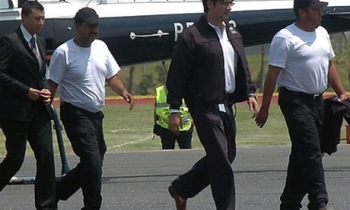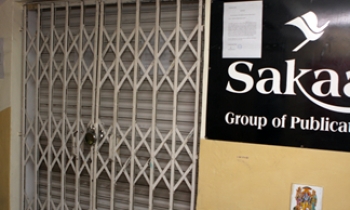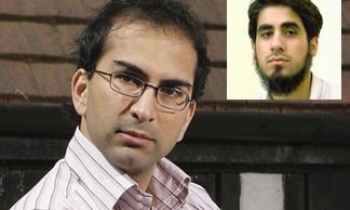Two newsmen, Befekadu Moreda from Ethiopia and Paulos Kidane from Eritrea, both tried to flee the region to escape government oppression. But "one life (was) saved and the other lost." In a special report, the Committee to Protect Journalists (CPJ) recounts their stories and provides a glimpse into the adversity facing journalists in the volatile Horn of Africa.
In his native Ethiopia, Moreda was known as a tenacious and uncompromising editor and was jailed nine times for his audacious practice of journalism. But once, his 3-year-old daughter wanted a drink, and even that was beyond his means as his family anxiously waited for a connecting flight to Houston—their new home.
In 2005, after deadly protests against alleged vote rigging in parliamentary elections, the government closed down most of the independent Ethiopian press and imprisoned dozens of journalists who reported the allegations. It was then, when he decided to flee.
"If you cannot work in your country, if they ban your newspaper, your media institution, what do you do?" he was quoted asking. Moreda, who was granted resettlement status in the United States, finally made it to Texas with his family, concluding a journey that began in early 2006 when he fled across the Ethiopian border to Kenya under threat of imprisonment.
According to CPJ research, Moreda is just one of 34 Ethiopian editors and reporters who have been forced into exile since 2001 — a period during which only Zimbabwe has produced more exiled journalists. Dozens of journalists have been in and out of Ethiopian prisons within this timeframe, one that also saw the wholesale dismantling of Ethiopia’s independent press, including Moreda’s well-regarded newsweekly, Tomar.
Moreda's prospects of returning home home are bleak. Although journalists detained during the 2005 crackdown have been released, many have gone into hiding, independent newspapers remain shuttered, and self-censorship is rampant. Today, this fearless journalist struggles to survive as he supports his family with a maintenance job at a local hospital.
The CPJ report also tells the story of Eritrean sports reporter and poet Paulos Kidane who was caught up in destructive political whirlwind consuming Eritrea and Ethiopia in late 1990s.
Kidane began his career in the mid-1990s as a freelance sportswriter in his native Ethiopia. At the outbreak of the border war with Eritrea in May 1998, Kidane was among more than 65,000 people of Eritrean descent who were deported. Uprooted from his home, he was later forced to work for the state media service in 2000. The culture of the Ministry of Information, where staffers were encouraged to spy on one another, had tormented Kidane.
In expressing his frustration, Kidane once wrote, “For me it is tough because I am a sensitive man.†Kidane, who loved to write poems, was reduced to writing nationalist and anti-Ethiopian items, “proverbs, amazing news, facts, records, etc†in the state-run daily Hadas Eritrea, according to one of his personal notes obtained by CPJ.

After years of harassment - including being thrown into prison for reasons of sheer intimidation, Kidane joined a small group of asylum seekers who tried to cross into Sudan on foot in June of this year. He did not survive the journey.
Officially independent since May 24, 1994, Eritrea is one of the few nations in the world without privately owned news media which had ceased to exist in 2001 and 19 journalists have fled from the since 2002 in response to threats, harassment and imprisonment on the pretext of not fulfilling their military obligations. With the government's absolute monopoly on domestic media, fear of reprisal among prisoners' families, and tight restrictions on the movement of all foreigners, this small country was ranked with Nepal as the world’s biggest prison of news media.
Conditions of the press in Africa had never been rosy. Nonetheless, there were countries dotted on the continent that showed respect to freedom of the press. Journalists were never imprisoned for doing their work and some of the poorest countries in the world like Cape Verde, Mali and Benin valued freedom of expression. Private media was not shut down on the grounds of being too critical to the authorities. This was further proof to the fact that autonomy to press and media is not a western concept, confined to developed nations and respect for human rights is above all a question of political will.
But the situation of press in the continent is far from being uniform. The part worst hit with acute censorship on private ownership of news media is Horn of Africa. Journalists work in extreme conditions. Almost all of them are behind bars in Eritrea. Although, several journalists were later acquitted in Ethiopia, many other still face charges and can bee arrested anytime due to the sluggish judicial system and huge numbers of complaints filed.
The Somalian press is bound to work in the context in which the state as such has collapsed and warlords are in control. Djibouti too, has almost no private media ownership. While most of the journalist say that such repressions don’t affect their writing, many confessed that they could not write freely anymore. Some of them even joined state owned media to for the fear of reprisal.
The authorities announced in 2001 that a parliamentary commission will be formed that would examine the issue of allowing privately owned media to operate again in Eritrea. At the end of 2004, information minister Ali Abdou Ahmed, said that the report was still under preparation and three years is not a very long time. He further added that the prisoners were not journalists anyways, “ethically and professionallyâ€, but enemy agents during and after the war against Ethiopia from 1998-2000.









